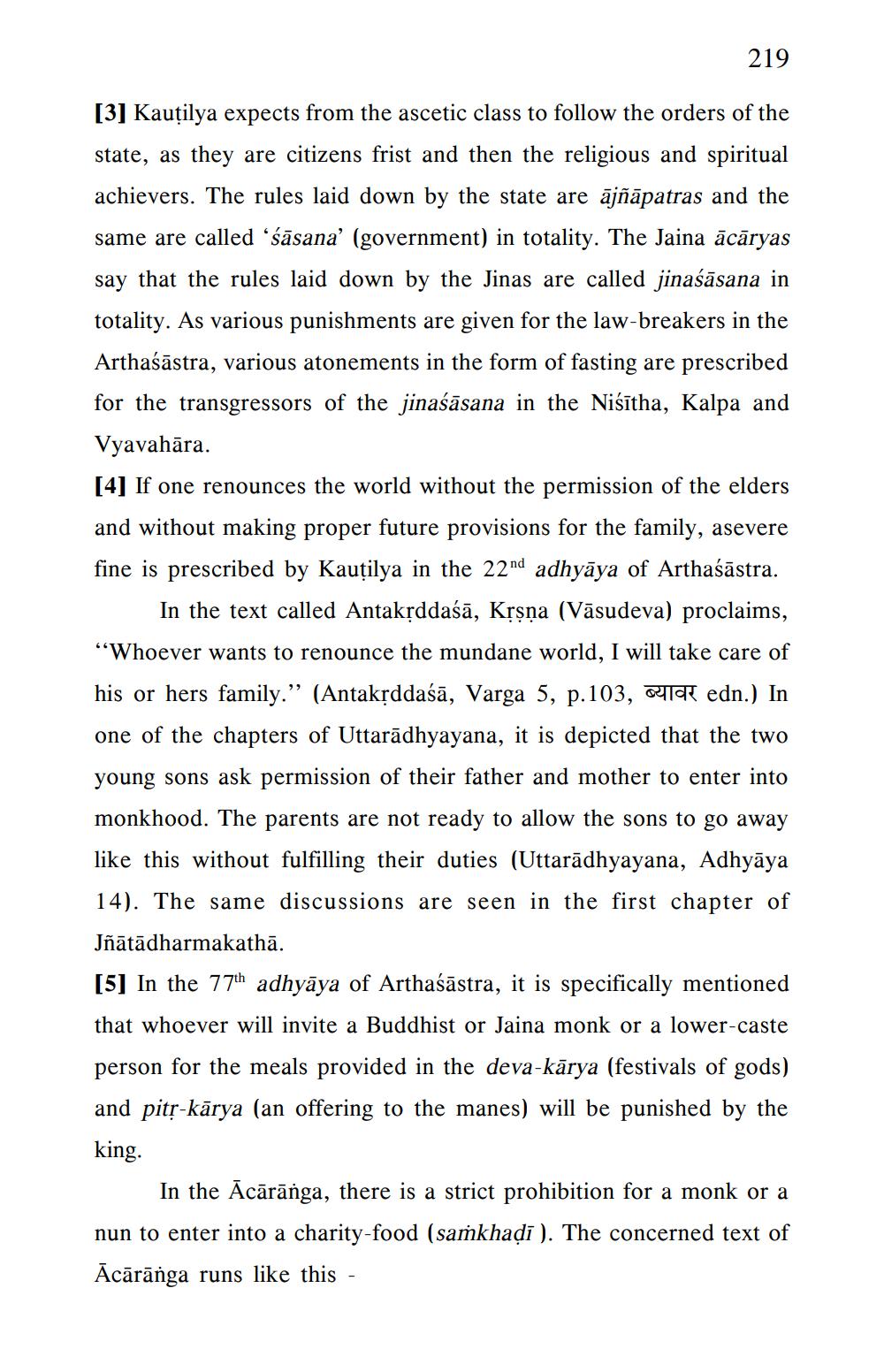________________
219
[3] Kautilya expects from the ascetic class to follow the orders of the state, as they are citizens frist and then the religious and spiritual achievers. The rules laid down by the state are ajñāpatras and the same are called ‘śāsana' (government) in totality. The Jaina ācāryas say that the rules laid down by the Jinas are called jinaśāsana in totality. As various punishments are given for the law-breakers in the Arthaśāstra, various atonements in the form of fasting are prescribed for the transgressors of the jinaśāsana in the Niśītha, Kalpa and Vyavahāra.
[4] If one renounces the world without the permission of the elders and without making proper future provisions for the family, asevere fine is prescribed by Kautilya in the 22nd adhyaya of Arthaśāstra.
In the text called Antakṛddaśā, Kṛṣṇa (Vāsudeva) proclaims, "Whoever wants to renounce the mundane world, I will take care of his or hers family." (Antakṛddaśā, Varga 5, p.103, edn.) In one of the chapters of Uttaradhyayana, it is depicted that the two young sons ask permission of their father and mother to enter into monkhood. The parents are not ready to allow the sons to go away like this without fulfilling their duties (Uttaradhyayana, Adhyāya 14). The same discussions are seen in the first chapter of Jñātādharmakathā.
[5] In the 77th adhyaya of Arthaśāstra, it is specifically mentioned that whoever will invite a Buddhist or Jaina monk or a lower-caste person for the meals provided in the deva-karya (festivals of gods) and pitṛ-karya (an offering to the manes) will be punished by the king.
In the Acārānga, there is a strict prohibition for a monk or a nun to enter into a charity-food (samkhaḍī). The concerned text of Acārānga runs like this




